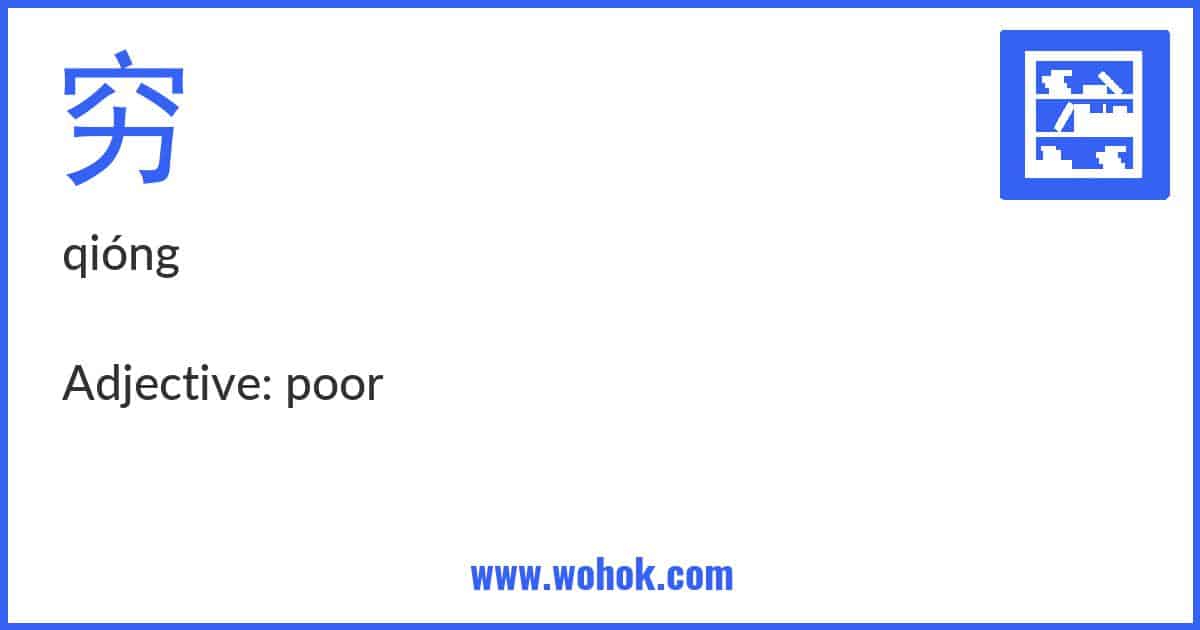The Chinese word 穷 means “poor” or “destitute”. It is commonly used to describe someone who lacks financial resources or is struggling to make ends meet. It can also be used to describe a situation or condition that is difficult or challenging. In some contexts, it can be used figuratively to describe a lack of creativity or imagination. Overall, 穷 is a versatile word that has many different uses and connotations depending on the context in which it is used.
Translation
Adjective: poor
Pronunciation
Example Sentences
| Chinese | Pinyin | Engish |
|---|---|---|
| 他家很穷,无法支付孩子的学费 | tā jiā hěn qióng, wúfǎ zhīfù háizi de xuéfèi | His family is very poor and unable to pay for his children’s tuition fees |
| 这个小镇的人们大多数都很穷 | zhège xiǎozhèn de rénmen dàduōshù dōu hěn qióng | Most of the people in this small town are very poor |
| 我们需要找到一种解决穷困的方法 | wǒmen xūyào zhǎodào yī zhǒng jiějué qióngkùn de fāngfǎ | We need to find a way to solve poverty |
| 这个地区的穷人生活条件很差 | zhège dìqū de qióngrén shēnghuó tiáojiàn hěn chà | The living conditions of the poor in this area are very poor |
| 这个国家的穷人很难获得医疗保健 | zhège guójiā de qióngrén hěn nán huòdé yīliáo bǎojiàn | The poor in this country find it difficult to access healthcare |
| 她的家庭虽然穷,但是她很努力地工作 | tā de jiātíng suīrán qióng, dànshì tā hěn nǔlì de gōngzuò | Although her family is poor, she works very hard |
HSK
穷 is part of HSK Level 4 in both HSK 2.0 and HSK 3.0.
Learning Card


